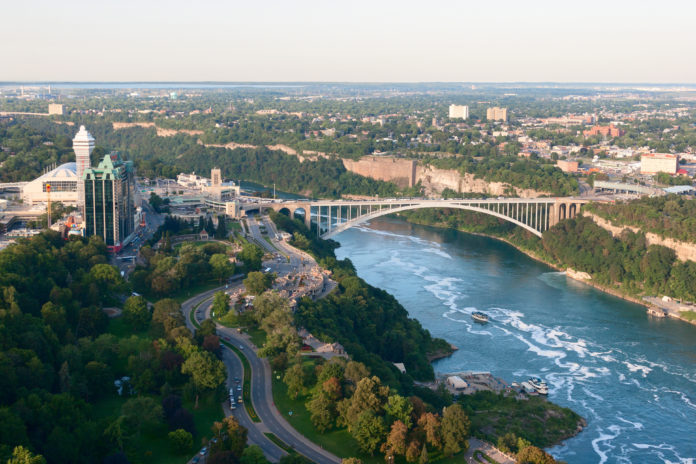
Bloomberg is reporting that Canada is working on a plan to ease border restrictions for travellers who are fully vaccinated against COVID-19.
Quoting sources familiar with the plan, the news agency says Prime Minister Justin Trudeau could make an announcement within days on a loosening of the 14-day isolation period currently required.
Those entering Canada will still need a negative test and could be subject to a shorter quarantine period.
However, the plans are in their early stages with no indication of when it will happen or if international travel restrictions will also be lifted, Bloomberg reports.
Read More
COVID-19: Canada and U.S. In Talks Over Re-Opening World’s Longest Land Border
MPs in Trudeau’s Party Urge Re-Opening of Canada-U.S. Border: Latest Canada Immigration News
COVID-19: Closure Of Canada-U.S. Border, International Travel Restrictions Extended Another Month
Both Canada and the U.S. are under pressure to relax restrictions, which currently expire on June 21 for the world’s longest land border.
Canada’s international travel restrictions also expire on June 21.
A further extension would be a huge blow to the tourism sector, with Canada Day on July 1 and U.S. Independence Day on July 4.
High-Level Discussions
Canadian Immigration Minister Marco Mendicino has been in talks with his American counterpart, U.S. Secretary of Homeland Security Alejandro Mayorkas, to re-open the border as the COVID-19 pandemic gradually comes under control.
“Today, I spoke with my U.S. counterpart (U.S. Secretary of Homeland Security) Alejandro Mayorkas,” tweeted Mendicino on Thursday.
“We advanced our partnership on global migration by discussing the promotion of legal pathways, capacity-building and best practices on community sponsorship for refugees. A good call with more collaboration ahead.”
In a statement, the Canadian immigration minister added he and Mayorkas “also discussed the management of our shared border, including the current border restrictions and the eventual resumption of international travel, which will be critical for economic recovery in both countries.”
Travellers At Land Borders Need Proof of Negative COVID-19 Test
Canada requires that anyone returning to the country quarantine for 14 days.
Travellers arriving in Canada by land from the U.S. also need to provide proof of a negative COVID-19 molecular test result taken within 72 hours or a positive test taken 14 to 90 days prior to arrival.
In addition, travellers entering Canada at the land border require to take a COVID-19 molecular test on arrival as well as toward the end of their 14-day quarantine.
All travellers arriving to Canada by air, with some exceptions, need to take a COVID-19 molecular test when they arrive in Canada and another towards the end of their 14-day quarantine period. They also need to stay in a government-designated hotel for three days at their own cost to await the results of those tests.
Anyone arriving by air from another country for non-essential travel is also required to have a negative COVID-19 test prior to boarding the aircraft in their home country.
Exemptions for Non-Discretionary Travel
Canada has exemptions in place for the following people, provided they are travelling for a non-discretionary reason:
- Seasonal agricultural workers, fish/seafood workers, caregivers and all other temporary foreign workers;
- International students who held a valid study permit, or had been approved for a study permit, when the travel restrictions took effect on March 18, 2020. More international students are now allowed to travel from October 20 last year under a new exemption;
- Permanent resident applicants who had been approved for permanent residence before the travel restrictions were announced but who had not yet travelled to Canada;
- Immediate family members of Canadian citizens and permanent residents are also exempt if entering to be with an immediate family member for at least 15 days, and;
- Extended family members of citizens and permanent residents, plus foreign nationals travelling on compassionate grounds.

